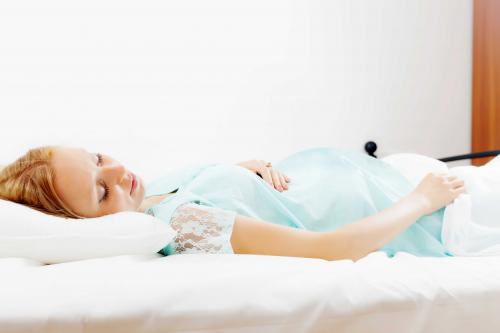Sleeping Tips for New Mother

Congratulations on your new baby! You are
doing it great as a new mom, but are you doing justice to your well-being. We
understand how hard it is to care for a small baby. But at the same time, you
need to take care of yourself too. Do you remember the last time you had proper
sleep? Probably not, right? It is essential that you take a proper sleep,
especially in the first few months after the delivery, not only for your sanity
but for your safety as well.
Sleep deprivation can put you at risk for
many health problems including diabetes, obesity and heart diseases. Having
proper sleep will help you get a higher energy level for taking care of
yourself, your family and your little bundle of joy. Listed here are the
sleeping tips that might help you get as much sleep as possible.
1. Sleep when you’re Baby Sleeps
Any experienced mom will tell you to take a
nap when your baby sleeps. This is one of the best ways to beat postpartum
sleep deprivation. When baby sleeps don’t involve yourself in other chores.
Remember, everything can wait, but not the baby.
Don’t care about the daily chores, or to make
phone calls or clean a messy house. Always keep in mind that nothing is more
important than your health.
2. Note, You Will Definitely Hear Your Baby’s
Cry
All the moms are in sync with their baby’s
crying. Many moms don’t sleep due to the fear that they won’t be able to attend
to their baby when they cry. If you are concerned about it that the nursery is
far away from your bedroom, buy a monitor and keep it aside you. Remember, your
baby is safe and it’s OK if he/she cries for a few minutes before you hear it.
3. Orthopedically correct Mattress
Majority of the new moms faces back pain
issues. Ensure that you are getting proper back and spine
support while resting. You can optimize your sleep by selecting an
orthopedically correct Mattress, with correct
firmness and softness that accommodates the various needs of your body
after the postpartum period.
Correct firmness and softness of the mattress
are highly essential to isolate noise and motion transfer during night trips to
the nursery. It also aids in providing proper spine supports and alleviating
pains and aches in the lower back, neck, shoulders, hips and other body areas.
Besides, all
the above-mentioned sleeping, you can also try:
•
Let the baby
sleep in the same room. This will ease mid-night disruptions
•
If possible,
breastfeed your baby. It will trigger the prolactin hormone which helps you in
falling asleep more easily
•
Alternate
nighttime duties with your partner. The shifts will let you sleep more per
night
•
If you tend
to suffer from postpartum depression, loss of appetite, mood swings, do consult
a doctor.
Comments